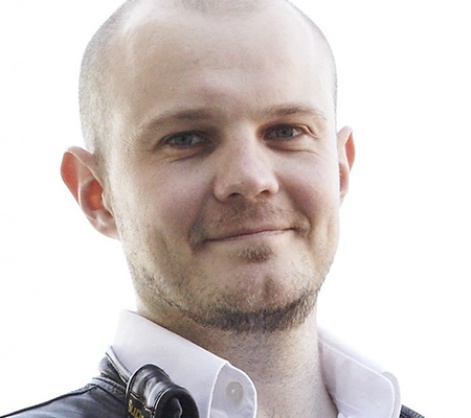Amongst the myriad of games studios in Brighton live some of the most prevalent mobile and handheld outfits, one of which is FuturLab.
After starting out on PlayStation Mobile, the firm has fostered success as a PlayStation Vita specialist, discovering surprising uses for the system's unique features.
This tiny studio's efforts to support the Vita have been rewarded by Sony, with the Japanese giant having pushed both Velocity Ultra and Coconut Dodge Revitalised via PlayStation Plus.
As such, FuturLab's games have been successfully exposed to a new audience, generating the kind of momentum other outfits operating on Vita would give their right arm for.
But what role has Brighton had to play in the studio's relatively short history?
Flash, a-ha!
FuturLab's managing director James Marsden's original ambition was to work for a major Flash game developer.
He moved to Brighton hoping to work for the then industry leaders in this field, Kerb, but found himself at a web development firm instead, before starting his own Flash development studio.
"After a year in a web technology startup the CEO decided to emigrate with my wages," says Marsden.
"A friend and I set up FuturLab with the clients we'd built up during that first year. It then took a series of ladder-jumps to grab the attention of the BBC and then Sony."

James Marsden
Marsden chose to settle in Brighton, arguing that the closure of the town's largest games company, Black Rock, helped the local independent games scene enormously and changed the atmosphere in the town.
"Since Disney's Black Rock closed down in 2010 the community has become pretty buoyant," he tells us.
"[Industry veteran] Richard Sturgess set up Brighton Games Drinks soon after Black Rock's closure, providing an informal platform for knowledge and opportunities to be shared. I think all the local studios have benefited from that. I know we have."
Made in Brighton
There are still improvements to be made when it comes to the city's development community, however, and Marsden is working with Sturgess to create a marketing initiative that they hope will aid all games companies in the seaside town.
"Rich and I are working on something called Made In Brighton," says Marsden.
"It's been slow going because we're all very busy, but Made In Brighton is intended to serve the local community and act as a prospectus to attract talent to the city. We need buy-in from all studios in Brighton, which I'm sure we have, but it takes time to chase up content.
"Hopefully we'll get around to realising this before too much longer."
Marsden's experience in the city to date would, no doubt, be of interest to others involved in the Made In Brighton initiative, with the CEO citing Brighton's limited space for creative businesses as the area's main issue.
"What the city really needs in order to foster the talent here is some affordable, cheap, local government subsidised office space that is open plan with flexible leasing options," claims a rather hopeful Marsden.
"It's extremely hard to find open plan office space in the city that is affordable."
On the other hand, Marsden also shares Mediatonic's view that the wealth of local freelance talent more than makes up for Brighton's logistical headaches.

Velocity Ultra
"There's a healthy media and technology industry, so it's always possible to find extra hands when needed," Marsden tells us.
"It's also easy to sell Brighton as a place to live. Our art team all relocated to Brighton, and there was never any question about whether they'd want to live here. In fact only one member of our staff is Brighton born."
"Observe the herd and do exactly the opposite"
There are plenty of other developers relocating to Brighton this week, albeit temporarily, for the Develop conference.
We asked Marsden what impact this huge games industry event has on the town. He's somewhat less enthusiastic than some of his peers.
"I'm not sure the town's atmosphere changes at all," Marsden claims.
"I'd say unless you happen to be staying at the Brighton Metropole hotel or attempting to get into the club that the annual Eurogamer party has chosen for its fun and frolics, you'd never know it was happening.
"That's not to take anything away from the Develop conference though, Brighton is just bustling with activity all year round."
Finally, we asked Marsden why FuturLab chose to put all of its eggs into the Vita basket and he offered some very simple advice for other indie studios.
"A very wise man once said: 'Observe the herd and do exactly the opposite'."
Come back to PocketGamer.biz tomorrow for our final Brighton interview during Develop week, where we will be chatting with CSR Racing developers, Boss Alien.
Have you worked in video game development in Brighton? What was your experience of the area? Are you attending the Develop conference this week?
Let us know what you think in the comments below.





















